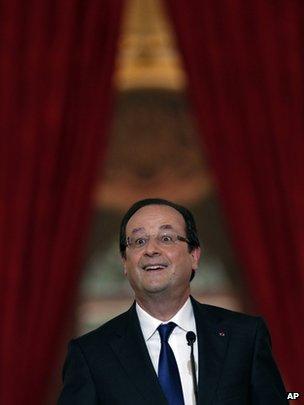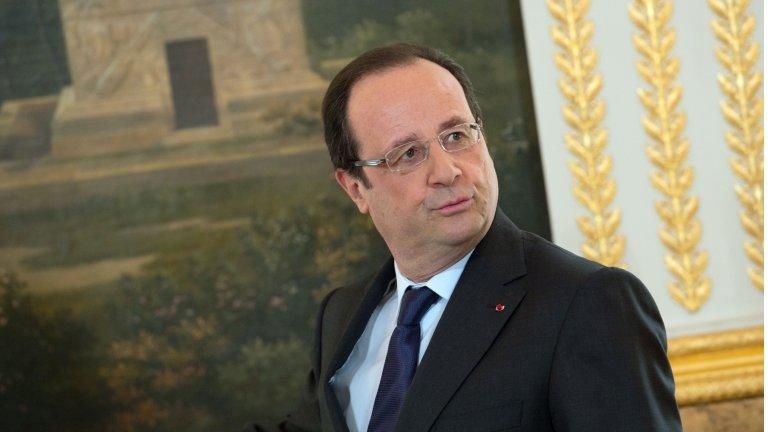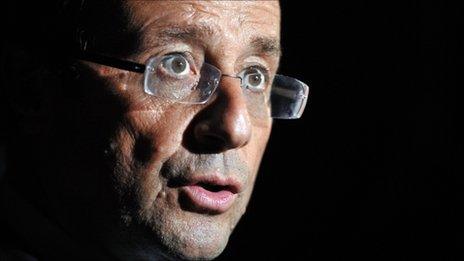President Hollande's dream
- Published

President Hollande took questions in Paris
The grand gesture lives! French President Francois Hollande marked the start of his second year in power with a news conference at the Elysee Palace.
In the face of disastrous poll ratings and an economy in recession he came with a big idea for the future. He proposed an economic government for the eurozone.
It would meet every month and would have its own president. He envisaged it raising taxes and having its own budget and even issuing its own debt. He capped this with a promise of closer political union in two years.
This grand vision had little to say about French unemployment now which has reached 10.6%. Indeed the president said rather optimistically that "the unemployment trend can be reversed before the end of the year".
It was left unexplained how this economic government would discover the growth that the president has made his priority. It was unclear whether this idea had been discussed with German Chancellor Angela Merkel who is, indisputably, Europe's most powerful leader.
Speaking just before the French president, she said: "What we need above all is a common understanding in Europe - and unfortunately there isn't one yet - of where growth comes from."
She accepted she might not have a "bosom friendship" with Mr Hollande but insisted their working relationship was good.
She is unlikely to welcome the idea for common debt or for an economic government.
It was also not explained by the French president whether the plan would be put to the French people, who were revealed this week to be as wary of further integration as the British.
Rather the plan seemed destined to silence all those critics in France who say that the country's influence is waning in Europe and that it is now a German Europe.
The French president was in apocalyptic mood. "If Europe does not advance it will fall," he said, "or even be wiped out from the world map... my duty is to bring France out of lethargy."
His predecessor had warned that if the euro failed, Europe would fail and conflict could return to the continent.
President Hollande blamed the economic crisis in France on the eurozone's strict austerity policy and welcomed moves by the European Commission to ease up on austerity and targets for cutting the deficit.
Much of this lengthy press conference was directed at the future. What remains unclear is how the French president and his government will bring unemployment down. That will require annual growth of at least 1.5% and remains a distant dream at present.
Berlin went out of its way today to play down friction with France. Indeed the German foreign minister said that Germany must not act with "Teutonic arrogance" towards its neighbours.
But for months now German officials in private have been expressing their frustration with Paris and with the president. France, they insist, needs far-reaching structural reforms to restore its competitiveness. They did not hear much detail on this from the French president today.
- Published15 May 2013

- Published15 May 2013
- Published28 November 2014
